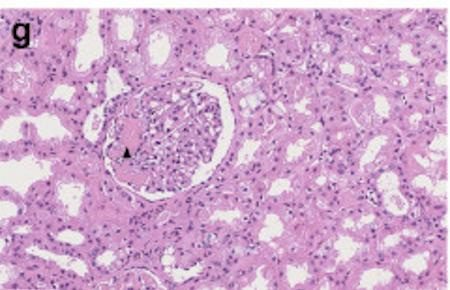The coronavirus is known to be a complex virus with a variety of symptoms. Medical doctors describe unspecific symptoms that can give way to respiratory symptoms. Even though the complications are predominantly pulmonary, various studies have shown that Covid-19 is also responsible for renal complications, which can lead to chronic kidney failure in the most serious cases.
By Hicham Alaoui
According to Amal Bourquia, a Moroccan professor of Nephrology and Dialysis, who also specializes in medical ethics and communication, information on kidney disease in patients with Covid-19 is limited.
Kidney damage appears to be common in patients with Covid-19 who are symptomatic and are associated with hospital mortality.
“Some studies have shown a high rate of kidney abnormalities that have a complex etiology. Clinicians should be more vigilant about kidney damage in patients with severe Covid-19,” she warned in a statement.
For the president of the Moroccan Association for the Fight against Kidney Disease, the exact mechanism of kidney damage is not clear, we suggest sepsis (serious infection, which spreads in the body from an initial infectious focus) leading to a cytokine storm syndrome (a substance made by the immune system, regulating cell proliferation) or direct cell damage caused by the virus.
Pr. Bourquia firmly believes that a direct attack of the virus on various kidney cells is very possible, referring to numerous articles identifying the kidney as a possible target of the virus, after the lungs and the heart.
Autopsies have detected RNA (essential nucleic acid in the transport of the genetic message and the synthesis of proteins) of the virus in the lungs at high concentrations, with the presence of the virus in the blood (viremia), in almost half of the cases and high level titles of viral RNA in the liver, kidney or heart.
A frequent and careful monitoring of kidney function in patients with Covid-19 can lead to early diagnosis of kidney problems, founding member of many societies and associations such as the Moroccan Society of Kidney Diseases, the Association Mediterranean renal disease and the Moroccan Society of Pediatric Nephrology have recommended.
Also, according to her, special attention must be paid to controlling the classic risk factors for kidney damage, which can alter the metabolism, excretion, and the dosage of drugs, “which can increase the risk of toxicity of certain drugs.”
Referring to the management of these patients, Pr. Bourquia indicates that it includes the initiation of conservative treatment and the use of dialysis.
Continuous renal replacement therapy (CRRT) can also be effective in treating patients with Covid-19 and sepsis syndrome, regardless of their kidney function, she adds.
According to Pr. Amal Bourquia, who also represents Africa within the International Association of Pediatric Nephrology, the need for dialysis generally occurs during the second week of infection and affects 5 percent of patients in intensive care.
She says replacement therapy kidney should be chosen, based on available resources and local expertise.
“From a distance these patients with acute renal failure must have nephrological monitoring because the risk of seeing these patients develop chronic kidney disease is high,” she argues.
Given the involvement of the kidneys during a coronavirus infection, it is also imperative to monitor patients who have not developed AKI (Acute Kidney Injury – acute renal failure), but have albuminuria (presence of proteins in urine) and/or hematuria (urine is red), Pr. Bourquia recommends.
She adds that specialists fear a wave of chronic renal damage after the epidemic.
Involved for many years in the management of kidney diseases, Pr. Amal Bourquia is part of the first generation of nephrologists in Morocco.
She actively contributes to informing the public and raising awareness within the medical community and state authorities on the development of kidney disease and the means of treating it.
Very active in her field, Pr. Bourquia has to her credit 15 books on Nephrology, which have enriched research in the fields of dialysis and kidney transplant.
HA/fss/as/APA


